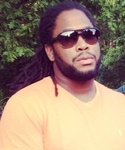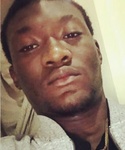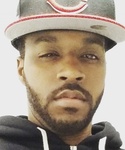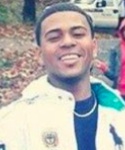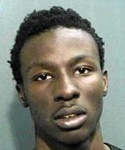From the first day of his trial, nobody disputed that Deshawn Chappell beat, stabbed and cut the throat of mental health worker Stephanie Moulton inside a Revere group home in 2011.
But it took a three week trial to convict him last October, as a host of prosecution and defense psychologists offered conflicting opinions about whether the voices in Chappell’s head told him to do it.
Such debates can be quite lucrative for the expert witnesses involved.
The price tag for the defense’s losing argument over Chappell’s sanity and culpability came out to $42,256 for one forensic psychologist and $11,210 for a neuropsychologist who never testified, according to court records.
When defendants, like Chappell, cannot afford to pay for their own defense, the state’s Committee for Public Counsel Services picks up the cost of those sales.
In 2013 alone, CPCS paid 13 individuals or private practices more than $100,000 to serve as expert witnesses, according to state spending records.
The top individual earner that year, forensic psychiatrist and Harvard professor Dr. Fabian Saleh, made more than $450,000.
And since 2010, CPCS has paid Dr. Leonard A. Bard, a Needham-based clinical psychologist, more than $1,081,000, the most over that span.
Dr. Saleh said that his testimony was always based on the evidence in the case and that he often turns down cases he cannot support.
“Typically I inform the attorney, where appropriate, what my opinion is going to be … and if it’s hot helpful to their case they’re not going to retain me,” he said.
But that’s not always the case.
With so much money on the line, some experts are willing to alter their opinions to fit the attorney and the price, said Dr. Thomas Gutheil, a forensic psychiatrist who has written extensively about the ethics of expert witnessing.
“An ethical expert sells time … an unethical expert sells testimony,” he said.
Christopher Robertson, a Harvard professor who studies ways to remove bias from the witness system, said that in the vast majority of cases experts base their opinions on the evidence presented to them.
But sometimes, the large paychecks come at the expense of justice.
“It can become problematic when the incentives are designed in a way that can cause the expert witness to be less than objective,” Robertson said. “What you end up with is prosecution experts favoring the prosecution side and defense experts favoring the defense side and the jury just gets duped.”
Dr. Gutheil said that the availability of “hired guns” — experts who base their testimony on which side is paying them, rather than the evidence — poses a paradoxical problem for lawyers.
Defense attorneys in particular are required to represent their clients to the best of their ability, regardless of innocence, guilt or the price, he said.
Once, after Dr. Gutheil ranted to an attorney about an opposing expert witness — the “number two hired gun in the state” — the attorney admitted that in the past he too had retained that expert.
“He turned to me and said ‘There are cases I get that are so bad I just need someone who will nod their head when I tell them to,’” Dr. Gutheil recalled.
In an effort to avoid the appearance of being hired guns, many experts rely on repeat clients and word-of-mouth referrals, Robertson said.
Dr. David Werner, the psychologist who testified in Chappell’s trial, for example, lists Chappell’s former attorney David Solomon as a reference on his website.
But others use brokerage companies to attract business, a practice Robertson and Dr. Gutheil said carry with it an appearance of bias.
“You don’t know whether behind your back they’re making promises” about how you will testify, Dr. Gutheil said
One such company, Falmouth-based SEAK, Inc. maintains a directory of over 25,000 expert witnesses.
“Getting into expert witnessing is often described by our clients as a life changing event. It is very lucrative. You can generate a substantial amount of ongoing income,” a white paper written by SEAK for new expert witnesses says.
